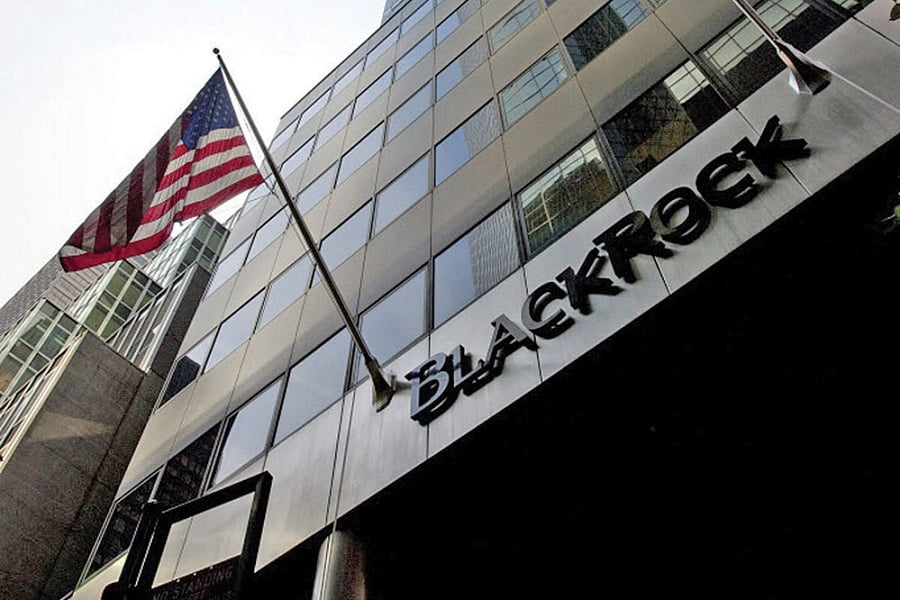

The growing anti-ESG push in the U.S. does not appear to be deterring one of the movement's main targets – BlackRock – from bringing more sustainability-themed products to market.
Recently the asset manager filed initial prospectuses for several funds that could launch later this year. Those include the BlackRock Sustainable Advantage Global Equity Fund, the iShares Transition-Enabling Metals ETF and the iShares Climate Conscious & Transition MSCI USA ETF.
For the past several years, BlackRock has had more assets in sustainability-focused funds that any other U.S. provider, with $60 billion as of the end of 2022, according to Morningstar. But the company has found itself in the cross-hairs of some state leaders who have accused it of boycotting the oil and gas industry. While BlackRock CEO Larry Fink has been vocal about the necessity of using ESG criteria to assess material financial risks and opportunities, the company is also one of the largest investors in oil and gas.
BlackRock has seen some massive clients from pulling assets from it, including Florida, Texas and Arizona.
But it has also rolled out numerous funds across its BlackRock funds and iShares exchange-traded funds lines, including at least five products that it began prepping last year. Those include the iShares Breakthrough Environmental Solutions, the ESG Aware MSCI USA Value, the ESG Aware MSCI USA Growth, the ESG Aware ICE-HIP Muni Bond and the Environmental Infrastructure and Industrials ETFs.
The recently filed BlackRock Sustainable Advantage Global Equity Fund would hold securities within the MSCI All Country World Index that have favorable ESG assessments relative to their peers, including those that have lower greenhouse gas emissions and are positioned “to capture climate opportunities,” according to the initial prospectus. That fund would exclude issuers involved in controversial industries like weapons production, civilian firearms, tobacco, thermal coal and oil sands. Portfolio managers for that fund will be managing directors Raffaele Savi, Kevin Franklin, Richard Mathieson and director Anna Hawley.
Meanwhile, the iShares Transition-Enabling Metals ETF would seek to invest in metals futures contracts. That ETF would track the ICE Clean Energy Transition Metals Index, which includes metals used in solar panels, wind turbines, fuel cells, electric vehicle batteries and other technologies. The metals necessary for clean-energy tech include copper, aluminum, silver, nickel, zinc, platinum and cobalt. The portfolio managers for that product will include BlackRock’s Richard Mejzak, Tim Parsons, Greg Savage and Paul Whitehead.
The other recently filed product, the iShares Climate Conscious & Transition MSCI USA ETF, would track the MSCI USA Extended Climate Action Index. It would invest in large- and mid-cap companies that BlackRock finds to be better suited than their peers to transition to a low-carbon economy. It would exclude businesses involved in the same areas excluded by the Sustainable Advantage Global Equity Fund but would also nix companies with exposure to “very severe” ESG controversies, according to the initial prospectus. Those criteria include human rights violations and toxic emissions and waste, for example. BlackRock’s Jennifer Hsui, Greg Savage and Paul Whitehead are named as portfolio managers for that ETF.
Last month, BlackRock’s head of sustainability policy and engagement, Paul Bodnar, announced that he was leaving the company in April to join the Bezos Earth Fund.

Integrated Partners is adding a mother-son tandem to its network in Missouri as Kestra onboards a father-son advisor duo from UBS.

Futures indicate stocks will build on Tuesday's rally.

Cost of living still tops concerns about negative impacts on personal finances

Financial advisors remain vital allies even as DIY investing grows

A trade deal would mean significant cut in tariffs but 'it wont be zero'.
RIAs face rising regulatory pressure in 2025. Forward-looking firms are responding with embedded technology, not more paperwork.
As inheritances are set to reshape client portfolios and next-gen heirs demand digital-first experiences, firms are retooling their wealth tech stacks and succession models in real time.
